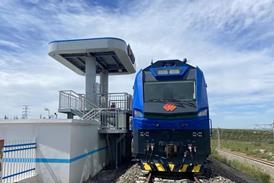Close menu
- Home
- News
- In depth
- Events
- Data
- Maps
- Tenders & Jobs
- Sponsored content
- Insights
Rock Rail signs first rolling stock financing deal
By Railway Gazette International2016-02-17T17:57:00

UK: Rock Rail Ltd has entered the rolling stock market with the signing of a deal worth more than £200m to finance a fleet of Siemens electric multiple-units for use by Govia Thameslink Railway.
Already have an account? LOG IN
To continue…
You’ve reached your limit of content for the month
Get enhanced access to Railway Gazette news and weekly newsletters.
Site powered by Webvision Cloud














